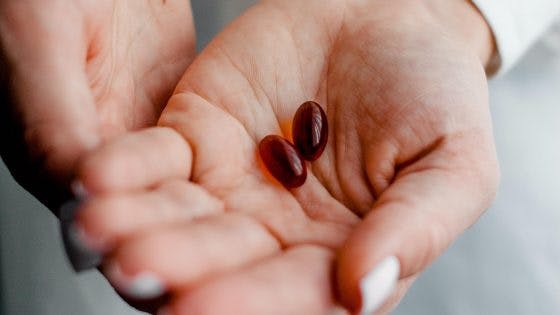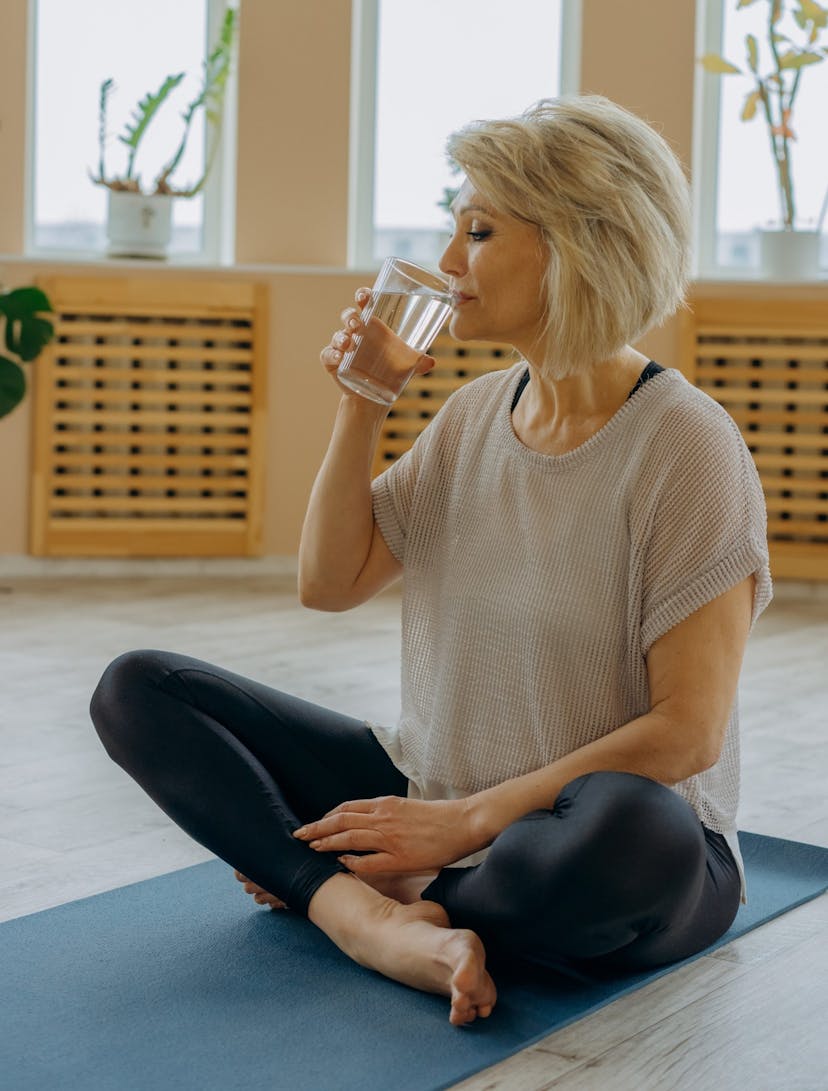The Best Menopause Supplements Experts Recommend
8 minutes read
Women going through menopause are susceptible to an array of symptoms spanning from hot flushes, night sweats, and joint pain to weight gain. Ranging in severity from person to person, these changes can lead to drastic shifts in daily living. 62% of women agree that symptoms interfere with their quality of life. So, it might be worth delving a little deeper into the menopause supplements to help you.
Menopausal symptoms affect more than 75% of women, and over 25% describe having severe symptoms. The good news is that the best menopause supplements may bring you relief from some of the symptoms associated with menopause if integrated with a varied and balanced diet and some lifestyle tweaks.
Beauty Daily speaks to UK’s leading menopause specialists to share their top advice on the best menopause supplements to try now.
Best Supplements For Hot Flashes
Did you know that 75% of women experience hot flushes during menopause? It’s one of the most common symptoms of the menopausal transition and often feels like a sudden flare of heat, paired with sweating and flushed skin.
“Fluctuating oestrogen levels cause hot flushes in the hypothalamus, an area of the brain that regulates temperature control,” Emma Bardwell, co-author of The Perimenopause Solution, menopause nutritionist and women’s health specialist, explains: “Some people swear by sage supplements, but there’s not much robust evidence to support this, although sage is well tolerated and seems safe for most people, so it might be worth trying.”
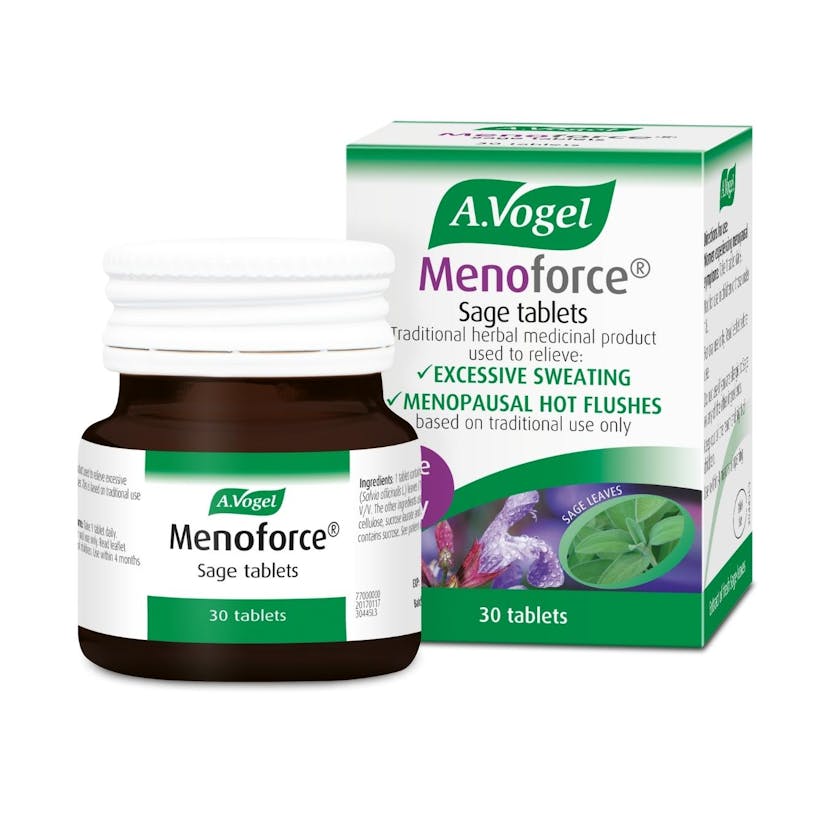
Try: A.Vogel Menoforce Sage Tablets 30 Tablets, £14.49.
Along with the supplements, clary sage extract is the key ingredient in the Clarins Calm-Essential Range, specifically formulated for people with weakened and sensitive skin and can help to calm a frazzled epidermis.
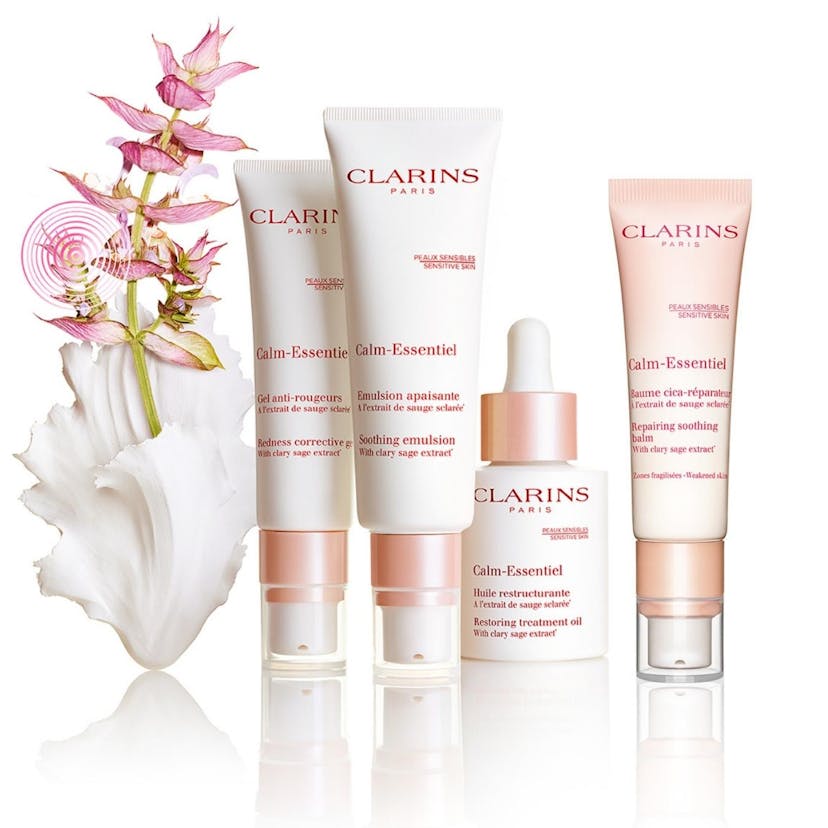
Another supplement that can help mitigate the effects and frequency of hot flushes is Anatome Menosupport and Renewal, £23.80. It’s formulated with primrose oil, soy isoflavonoids and Siberian ginseng, which may help ease common symptoms such as hot flashes and mood swings.
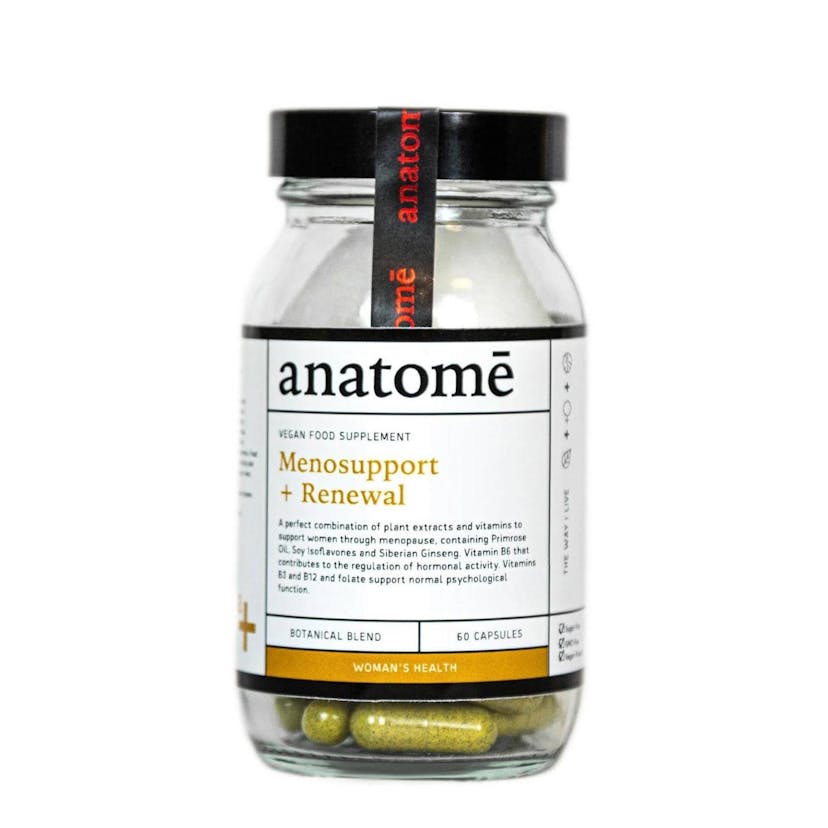
Some lifestyle changes can also help tame a hot flush, such as quitting smoking and managing or reducing your stress levels. In addition, a therapy worth checking out is Cognitive Behavioural Therapy (CBT).
“One of the first line non-hormonal treatments for hot flushes is CBT. It’s a therapeutic intervention that challenges unhelpful thoughts or feelings. This is largely because hot flushes are often triggered – and made more intense – by stress,” Bardwell says.
You can get CBT on the NHS. You can go directly to an NHS psychological therapies service (IAPT) without a referral from a GP, or your GP can refer you if you prefer. Check the NHS website for more info.
The British Menopause Society (BMS) recommends CBT for several menopause symptoms, including hot flushes and sleep. In addition, the National Institute for Health and Care Excellence (NICE) flags it as a valuable treatment for depression, poor self-esteem, and low mood.
Best Supplements For Menopause Weight Gain
You might find it a bit surprising, but according to our latest feature about The UK’s Top 10 Menopause Concerns, ‘weight gain’, with over 300k yearly searches, is the British menopausal women’s most common menopause concern.
While menopause weight gain is influenced by many factors such as age-related loss of muscle tissue, lifestyle factors (diet and lack of exercise), and changing hormones are the leading culprit.
“Weight gain during menopause is widespread, and hormones play a big part,” Dr Rachel Jones, MBBS MRCPsych, Consultant Psychiatrist and Bioidentical Hormone Therapy Expert, explains.
Experts say fluctuating and falling hormone levels around menopause can affect how we store fat.
Dr Jones explains: “During perimenopause [the transitional period leading to menopause], the first hormone to decrease is progesterone which can lead to oestrogen dominance, a common symptom of which is weight gain leading to storing more fat around the stomach area.
Although oestrogen levels fall during menopause, if progesterone levels drop faster, it is still possible to become oestrogen dominant.” In addition, studies suggest high oestrogen levels promote fat gain.
If you find menopause weight gain bothersome or affecting your self-esteem, you can do a couple of things. Dr Jones shares her tips:
Have your hormones checked. “It is important to have your hormones balanced during menopause. It can be done in a specialised clinic where the doctor gets a full picture of your hormone health via taking a full history and blood tests before starting any treatment.”
Adopt a healthier lifestyle and low-stress living. “Lifestyle changes where behavioural habits can be adopted by the individual to optimise the balancing of hormones. These include:
Keep active and exercise regularly, and engage in resistance training.
Maintain a good sleep routine and aim for at least 7 to 8 hours of good sleep.
Consume a varied diet with a mix of fresh, unprocessed food, high protein, low sugar, low carbohydrate diet with good fats such as avocados, nuts, seeds, extra virgin olive oil and oily fish.
Minimise stress and include mindful practices such as spending time in nature, yoga, and meditation.” While there is no concrete evidence, evening primrose oil has been said to help with menopause weight loss. The oil is a phytoestrogen, which can help balance the oestrogen levels in our body. And it’s full of omega-3 and omega-6 and the intake of these mega oils may reduce your risk of obesity.
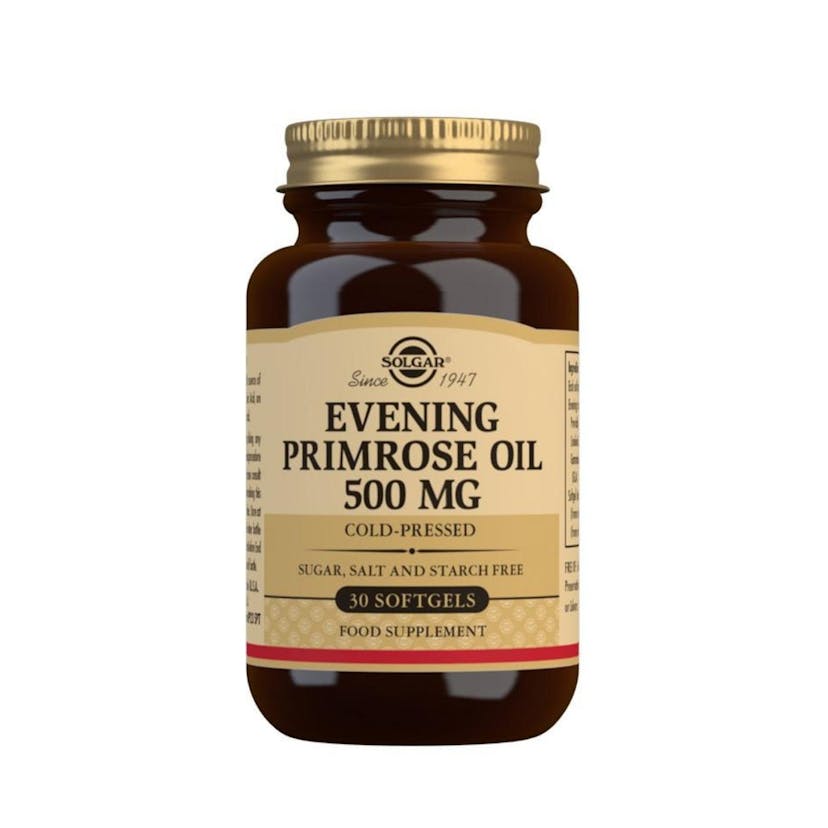
Most nutritionists suggest 500mg-1,000mg daily. Solgar’s Evening Primrose Oil 500 mg, £9.99, is made with premium quality primrose oil that is cold pressed and easy to swallow soft gels.
Read next: What’s The Deal With Menopause Weight Gain?
Best Supplements For Menopause Night Sweats
“Honestly, there are no evidence-based supplements that specifically help with night sweats,” says Bardwell.
But there are ways you can combat night sweats by making some bedtime routine tweaks, such as avoiding alcohol before bed and avoiding desserts at dinner.
“If your blood sugar levels crash at night, it can cause your body to switch into fight or flight mode, which in turn can trigger night sweats (and sleeplessness, palpitations, and anxiety).
Try to keep your blood glucose levels steady throughout the day, particularly in the evening. Avoid high sugar foods at dinner (this includes wine), opting instead for nice blood sugar balancing combo of protein, complex carbs, and some healthy fat,” Bardwell advises.
Bardwell also suggests having a lower tog duvet. “If you share a bed, consider having two single duvets, so you’re not getting the heat from your partner’s body, and you can throw yours off and not interrupt them.”
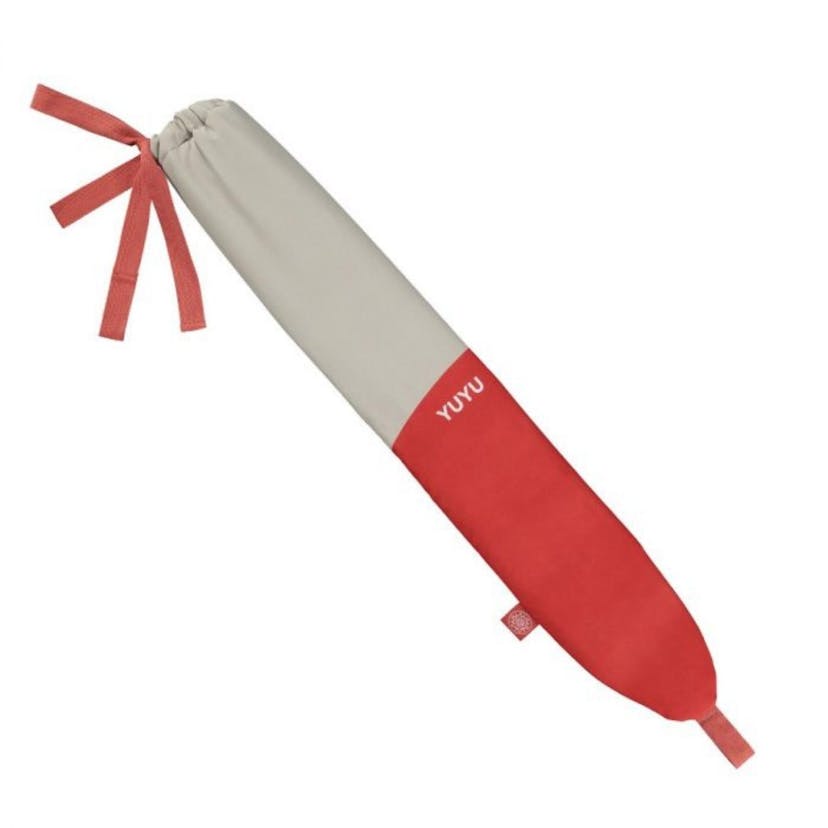
Opting for breathable materials, like linen and bamboo sheets, work wonders to keep you cool. “There are also water bottles like YUYU Recovery Bottle, £45.00, that you can half fill and freeze and have in bed to cool you down. Cooling mattress liners and Chillmax’s pillow inserts, £9.97, come highly recommended too.
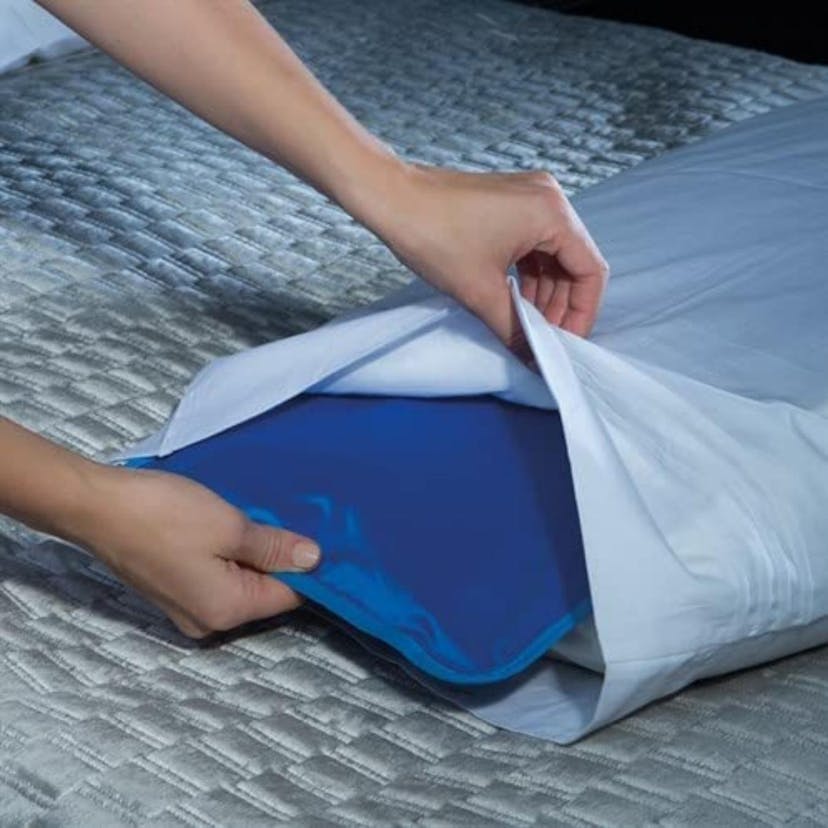
Keep your room at a lower temperature (sounds obvious, but many people sleep with windows shut). Plus, wear vests or shorts rather than long sleeves or even better, go naked,” Bardwell recommends.
Best Supplements For Menopause Joint Pain
Menopause and joint pain are common. One survey suggests that almost 40% of women aged between 45 and 65 have experienced a situation where their joints suddenly become stiff and painful.
Dr Jones explains that oestrogen is anti-inflammatory and helps to reduce inflammation when oestrogen levels decline during menopause; inflammation may increase, causing discomfort, stiffness, or pain.
“Old injuries may begin to ache as well as other joints including neck, shoulders, elbows, hands and knees,” she says.
Dr Jones recommends looking into hormone replacement therapy (HRT).
“After a detailed history and blood tests are performed, a course of treatment can be prescribed in a clinic. HRT involves taking hormones, including oestrogen, identical in structure to hormones produced in the human body to replenish levels that have fallen. It is highly effective at treating joint pain caused by menopause.”
Also, make sure you don’t miss out on supplementing vitamin D.
“Vitamin D is often low in individuals living in the UK due to lack of sunlight, especially during the winter. Vitamin D is made by the skin exposed to sunlight and is essential for strong bones. Lack of it may lead to bone weakness and aching bones and joints,” Dr Jones says.
Public Health England advises taking 10mcg (400IU) of Vitamin D when the sun is at its lowest between October and March.
According to Bardwell, “Women with dark skin tones may need a higher dose of up to 25mcg (1000IU) or even more. If in doubt, ask your GP to check your levels (optimal levels are 70 nmol/L).”
The nutritionist advises taking D3 (the active form of vitamin D) alongside K2 for menopausal women, which helps deposit calcium into the bone and prevent fractures in later life.
Many supplements on the market combine D3 and K2, like Nutravita’s Vitamin D3 with Vitamin K2 120 Capsules, £16.19.
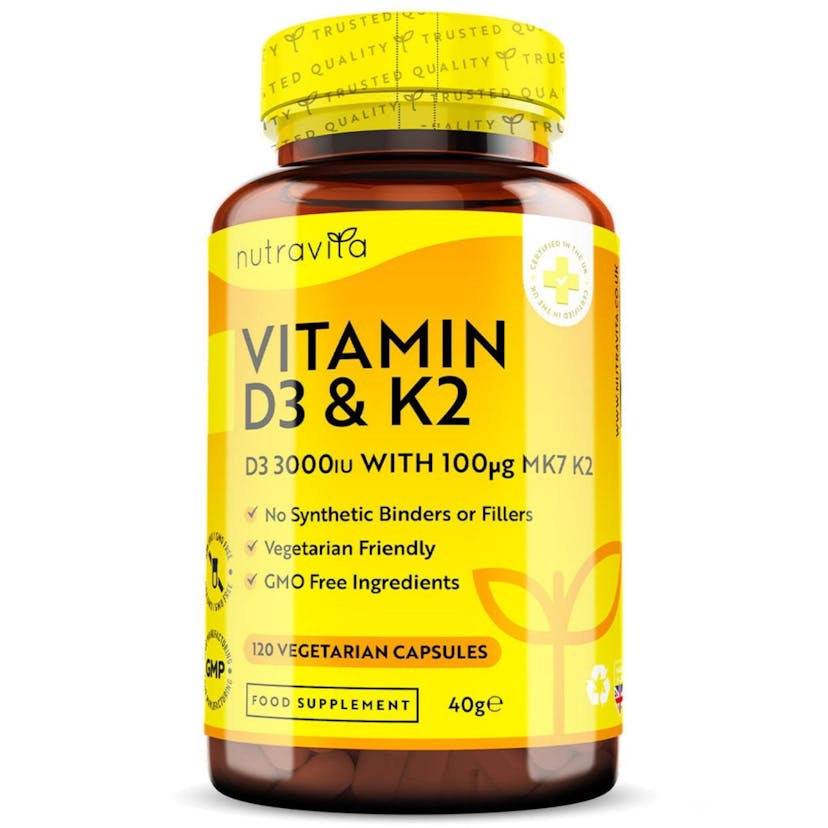
“Vitamin D is a fat-soluble vitamin which means it’s best absorbed alongside a meal that contains some fat,” Bardwell says.
If you are looking for a good overall supplements, check Wild Nutrition’s Menopause Trio Support, £72.
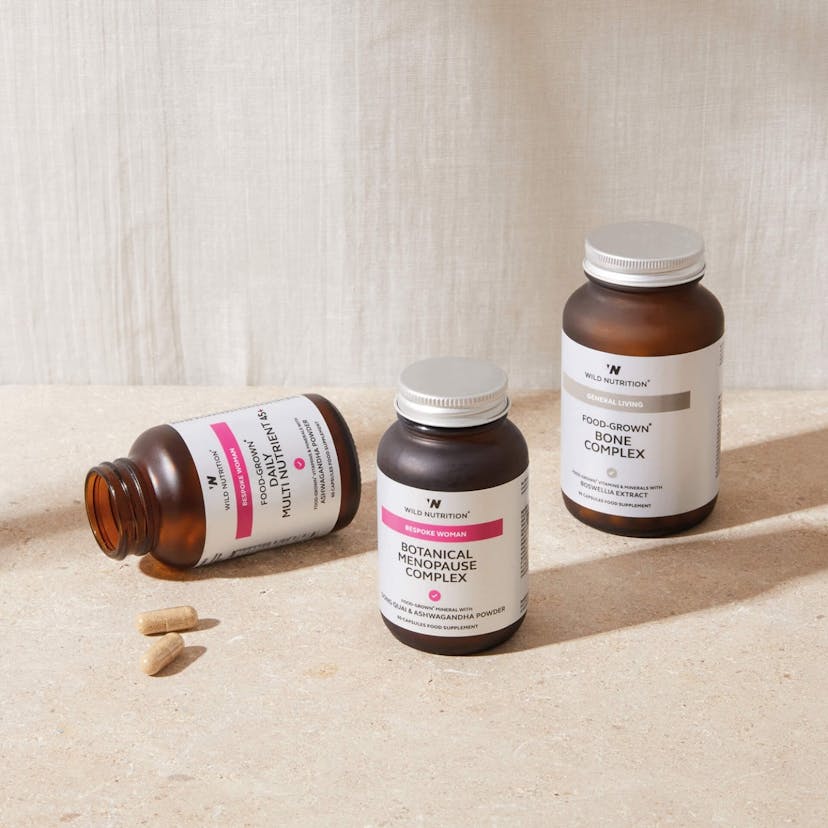
The bundle includes Botanical Menopause Complex, Daily Multi Nutrient 45+ and Bone Complex. The supplements are formulated for bone and joint support, helps regulate hormonal activity and supports your immune system.
Whatever your route, it might be worth an appointment with your GP or specialised healthcare practitioner to provide the best plan for you.
Find a menopause specialist near you with the British Menopause Society List here, and Emma Bardwell offers online 1-2-1 services here.
Read next: Holistic Ways to Manage the Menopause
Sign up for our newsletter
We will keep you in the loop for special offers, exclusive gifts and product news.

